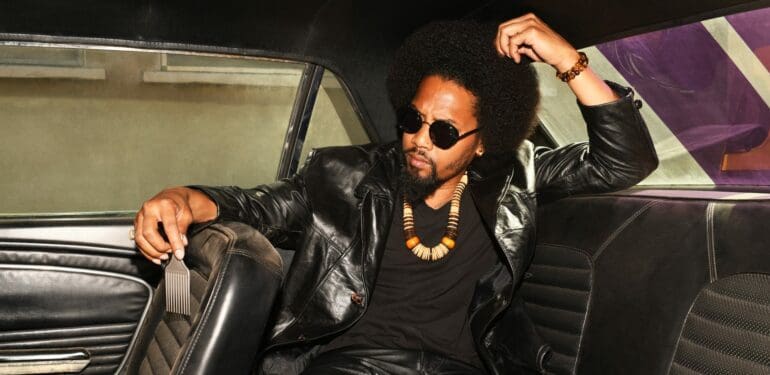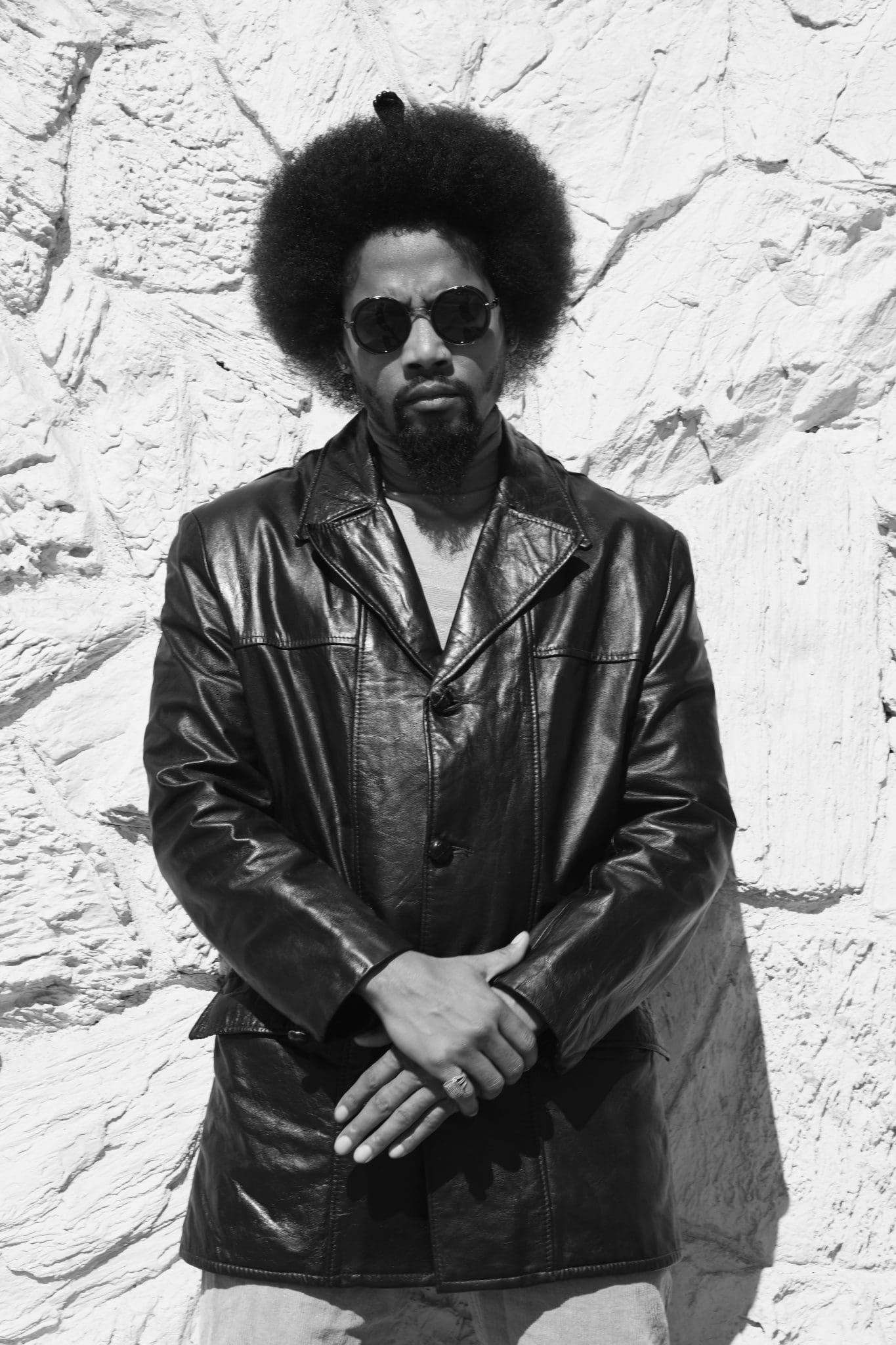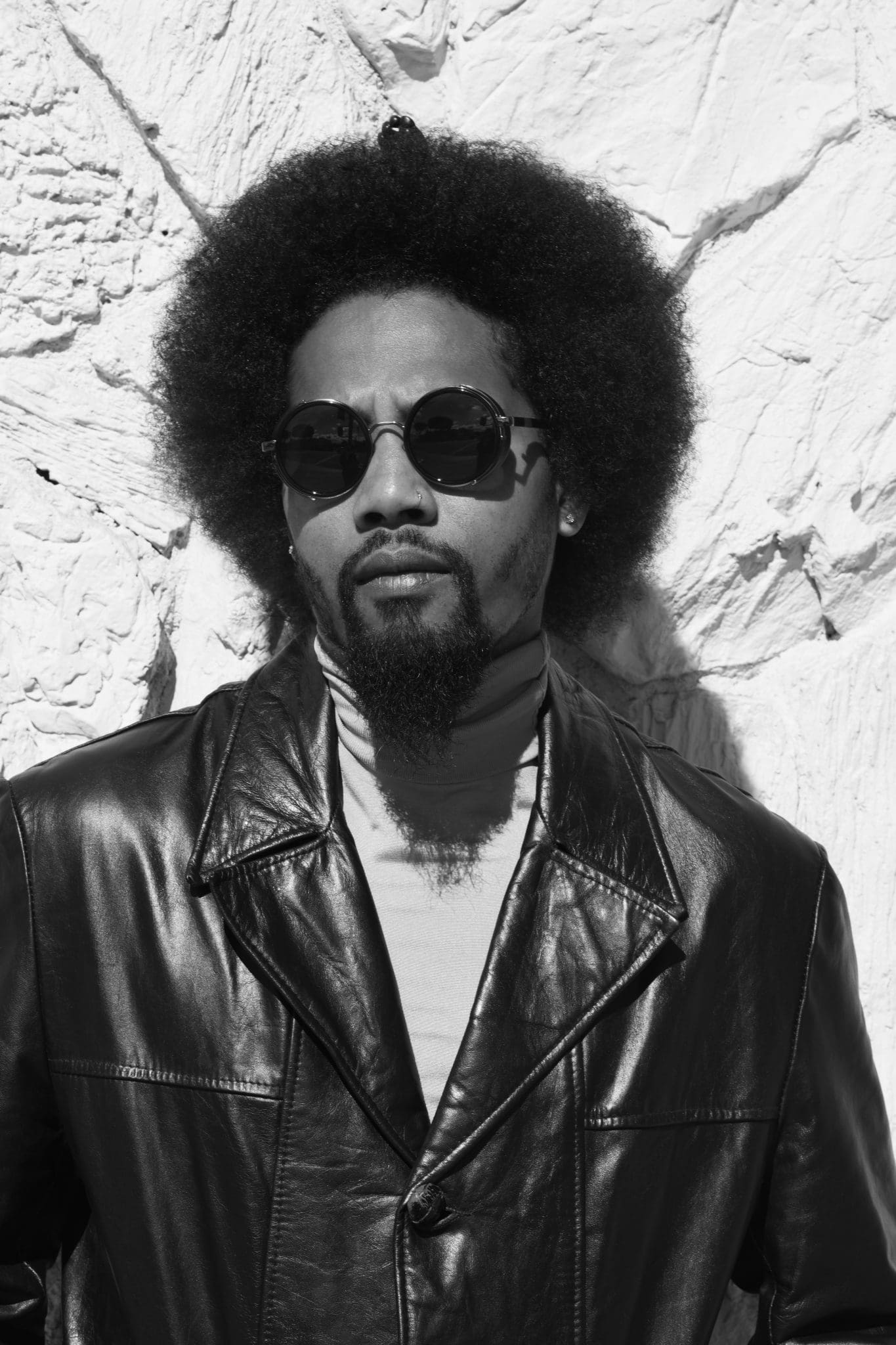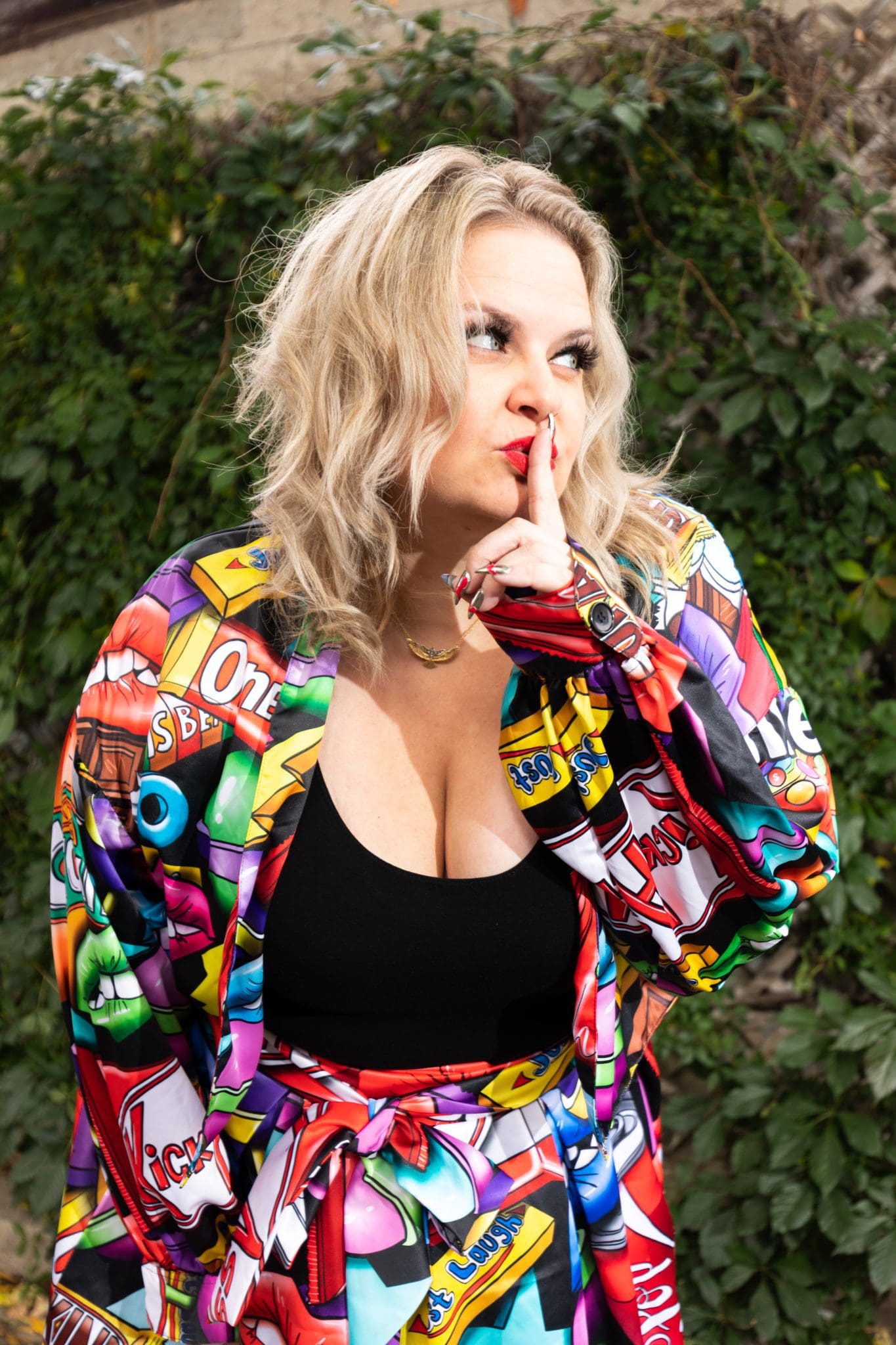Meet Jamie Starr. It’s been a long journey to get to him to where he is today, facing tough decisions and more than his fare share of adversity, but from I can tell, it’s all been worth it.
Jamie Starr started out as a child actor, and his resume has expanded impressively since that very early start. Starr has a variety of credits to his name, including household name level shows Martin (1991-97) ER” (NBC, 1994-2009) and Black Lightning (2017), and films like Tyler Perry’s Madea’s Family Reunion (2006), Stomp the Yard (2007) and Beyond the Lights (2014), Straight Outta Compton (2015), and Black Panther. Starr is also a creative and successful street performer and dancer, and artist and music producer. Now, at 37 years old, Starr is stepping back and stepping up, flexing his creative muscles, and working to elevate himself in a post-pandemic entertainment industry.
I had the great fortune to spend time with Jamie earlier this year, to ask him about that journey. What follows is a slice of the wiser, experienced, and successful artist; an attempt to fill in the gaps while giving context to his impressive resume.
Lindsay Anne Delaney:
When did you start working in entertainment and what drew you to this industry?
Jaime Starr:
I first started working in the entertainment industry in the very early 90s bordering on the late 80s. Growing up, some of my earliest memories with my mother and oldest brother are of our small one-bedroom apartment being full of music (mostly Michael Jackson and Prince) and movies like Enter The Dragon, Purple Rain or The Last Dragon. I was always re-enacting scenes from T.V shows and movies or saying the lines along with the movie as I rewatched Coming to America for the 1,000th time. I was drawn to the energy those songs and films gave me.
My first on camera job was “The Kid” in an independent film titled Misfit Patrol produced and directed by Anthony Cardoza. My mom was also cast in the movie, and signed on as producer.
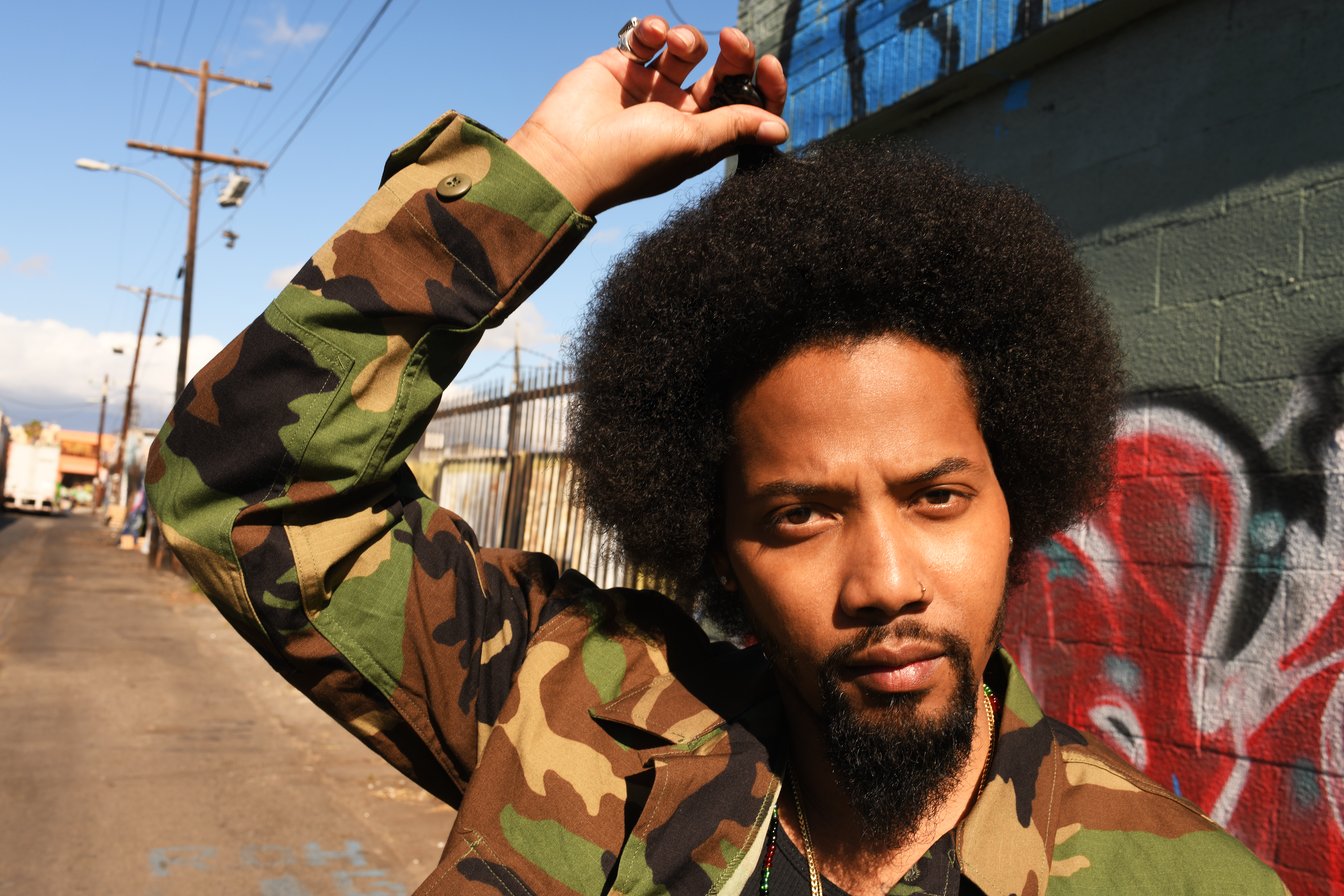
LAD:
Being a child actor must have been quite the experience. What has it been like navigating the entertainment industry for so much of your life?
JS:
I’ve been in the entertainment industry since before I could read, so it’s really all I know. I’ve been fortunate and blessed enough to have always been surrounded by and represented by amazing managers and agents. Once I learned to accept rejection it became easier to navigate; being an on-camera actor you must be able to deal with rejection on a regular basis and know not to take it personally. Being a working entertainer has its ups and downs and growing up as a child in this industry certainly comes with its own set of social challenges, like knowing who you are vs. a character you’re playing and being able to identify yourself and not get lost in the psyche of a character.
LAD:
You are part Thai and part African American; what role, in your experience, does race play when navigating a career like yours? Have you ever felt typecast based on your race? And do you find that the industry is becoming more or less progressive in this area?
JS:
I certainly like how the industry has become more progressive when it comes to race in casting, and it’s reflected in a lot of the major projects that have come out in recent years. Being biracial growing up in the industry has had its benefits like being able to play black or mixed roles. But the fact that I’m half Asian does get dismissed, mainly because there aren’t as many Thai actors as there are Chinese, Korean, Indian or other Asian cultures in Hollywood. But throughout the decades that I’ve been in the industry, I’ve noticed that race has certainly played a role in my career including being typecast and reading for pretty much the same type of roles for different projects and shows. But above that I believe peoples (producers, directors) personal prejudice or preference can play an even bigger role. I have been told I wasn’t cast for a part because I wasn’t street enough as well as being told I was too street for other roles. It’s been frustrating to get conflicting reviews.
LAD:
What would be your dream role or project, and who would you love to work on it?
JS:
Vampire or werewolf, Anti-Hero, mostly a character with range and depth that the audiences of all walks of life can relate to on some level. The type of character that motivates others or can help adjust some prejudiced thoughts of the masses. Growing up I had a list of people that I certainly wanted to work with eventually and one day I looked up and noticed that I had done at least one project with almost everyone on that list, I’ve worked with so many legendary people and there’s always going to be someone new or different folks that we would love to collaborate with as entertainers, so the list is now always evolving. Above all I would love to work with my mom, she wrote a screenplay years ago as well as some other projects we would discuss when I was growing up and she is the real reason or secret to my early success, and I would love to bring those projects to the screen with her in a major way.
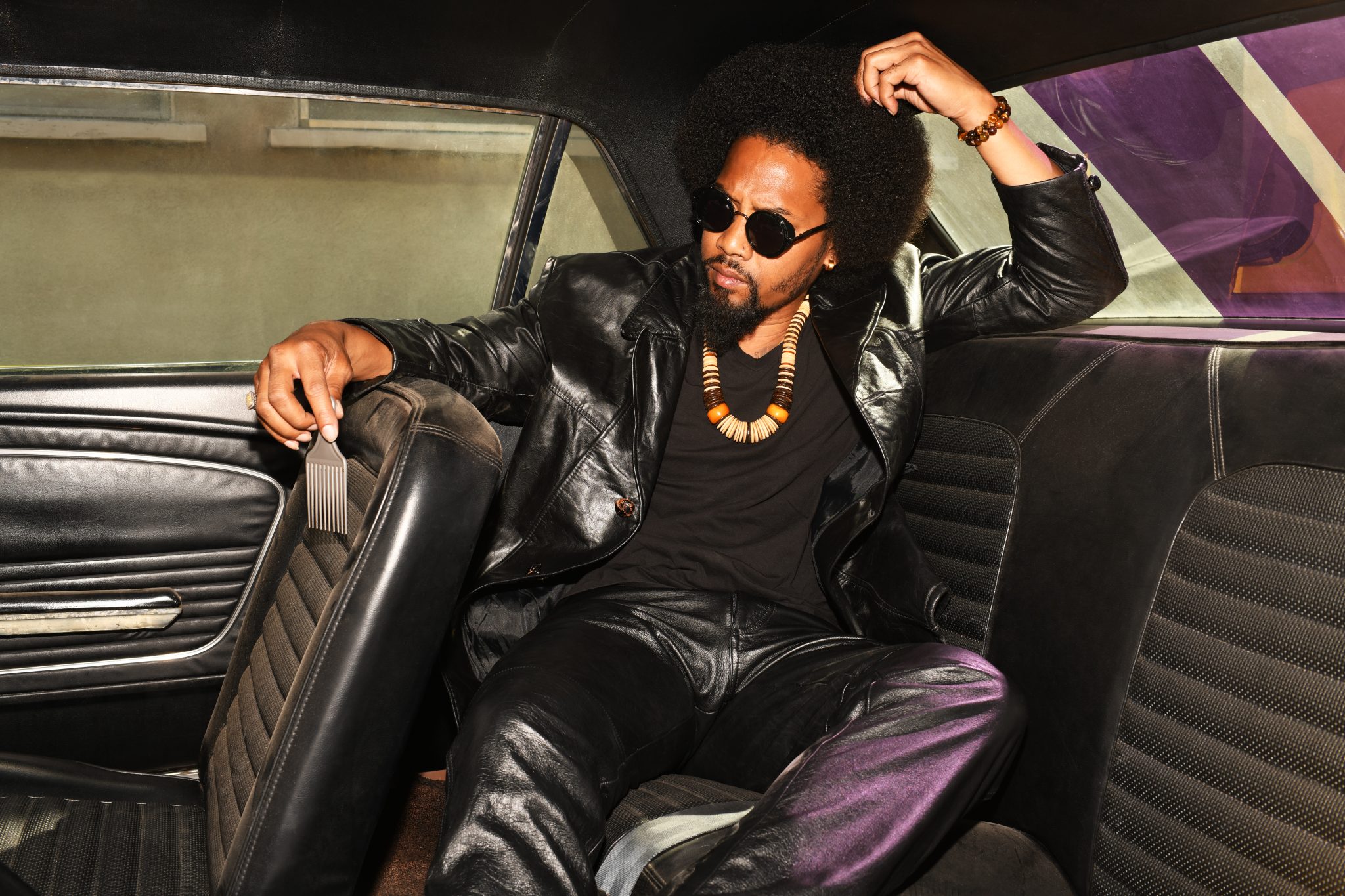
LAD:
For you, is art imitating life, or is life imitating art?
JS:
I am a cinephile for sure, so I definitely go to movie quotes in my everyday life for example: ‘I learned the facts of life from watching the facts of life.’ So, I’d say both. I imitate the art in my daily life, and I always pull from life experiences when playing a character.
For me and my friends, movie quotes, it’s like our love language. There will be people around, we’ll have a conversation, and we’ll just break out into random movie quotes, and we’ll do an entire scene. And everybody else there will be like, “you guys have too much time on your hands.” But this is just how we grew up, this is what we love, obscure movies and TV shows. It really does put people who aren’t about that life outside my kind of bubble.
LAD:
You have a history with Disney and Nickelodeon but you also street perform, very different worlds. Are there specific challenges to living in these two worlds? If so, what does this duality mean?
JS:
For me, there’s more than the duality, right? Because duality just kind of limits it to two sides but there’s multiple sides of the kid. Everything that makes up everything that is me. We’re talking strictly about the separation between [the performer] Thrilla and Jamie Starr. There is duality in that because we’re separating those two individual personalities, but then there are more layers and levels to it, you know? There’s Jamie who’s the individual that people know on a personal basis. There’s the actor. There’s also the mentor. There’s the father. Then when it comes to @Thorilla; Thrill is just more of what the public gets to see, but it’s even more than that, because Thorilla has a reputation on the street side of it as well. Doing Disney shows and projects like that even as a youngster, but on the flip side of that, still having to street perform and make my money on the streets where it can still get rough… With that, there is a certain something added, there is a certain persona or a presence that has to be respected and understood.
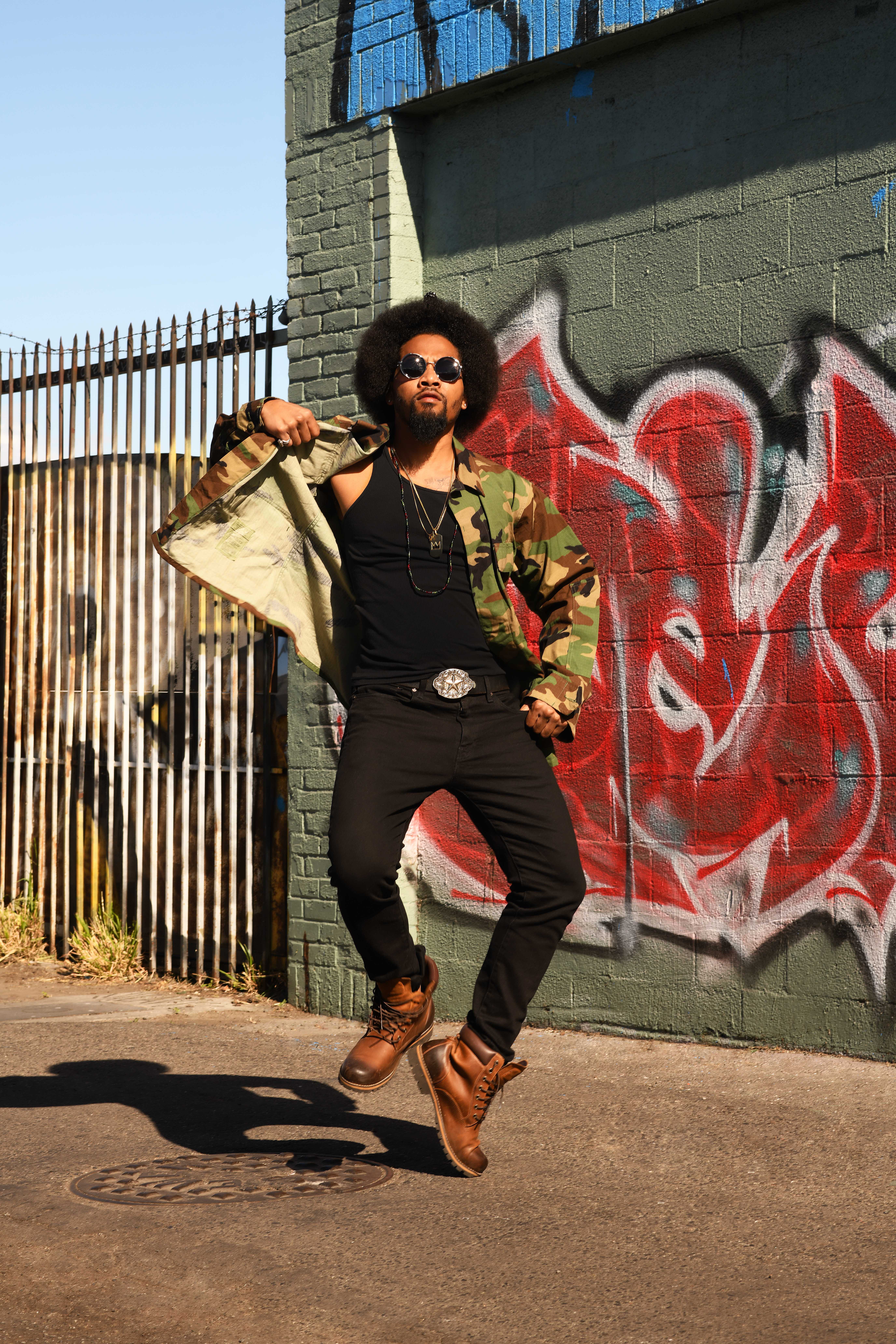
There’s what the public wants to see and what they project or perceive, and then there’s the reality. There’s what the industry wants to see, and what is important to them. On the other side, there’s what the streets see and what also has to be presented to them as well. If you look at both sides of it, I’m just playing the game that is presented to me. Creativity is my strategy. Ultimately, I just want to be creative. I just want to act; I just want to do the work that I’m good at.
LAD:
What would say your “guiding light” in all of this?
JS:
It’s hard to pinpoint one thing but, I’d say commitment to the craft and don’t get distracted by the noise. I’ve done this long enough that I don’t care about being famous and then money is just a result of my success, I don’t tie them together. That’s been the blessing of being who I am. I’ve been able to not ever work a ‘regular job” because I’ve been able to do what I love consistently and be able to successfully make a living of it. The way that I’ve looked at it is as someone who dropped out of High School as long as I’m making more than my high school teachers, then I feel like I’m doing pretty well.
LAD:
At this point in your career, what does success look like for you?
JS:
Being that I am in the one percent of all actors and entertainers I’m walking in success. I really don’t care about being “famous” but what I do desire is to be recognized for the art. I want to inspire people. I want to execute on my goal and focus on doing what I love and what I’m passionate about. I’m not just doing things for money. It’s like what Jim Carrey said, “I wish that everybody could achieve that fame and fortune, so they realize that that’s not the answer to it.” If it doesn’t make me happy then I’m not going to do it because it really doesn’t matter how much money you have if you can’t look at yourself and tell yourself that you love yourself.
Success for me is having creative freedom and having a joyful, peaceful life. And what my focus is, is the respect and admiration of my peers, not the public. I want to be able to do that [my work] and be able to take my kids to the park, to be a human being outside of work. Head in the stars with my feet on the ground.
LAD:
So, why, after 10 years, do you want to get back into on screen acting and what does it mean to you?
JS:
For my son’s first eight years, it wasn’t a problem for me to take on that role financially, but I hadn’t developed as a man for that situation [fatherhood]. The first years of my adulthood my #1 priority had been to provide for my son, take care of my son and make sure that my son was good. That kind put the brakes on my personal development, and I had to grow up with a larger personal purpose. Being a childhood actor, to have a child at such a young age and then just having to be an adult. The last 10 years have been developing a deep understanding of who I am and who I want to be.
My method had been to wake up in the roles I was playing. I WAS that character until the project was complete. I would hold on to a lot of residual characteristics of characters that I played. I’ve realized that this was partially a result of not knowing who I was, as a black man, as an American, as a human being. For example, I just recently discovered that on my black side I’m over 20% Nigerian. So, I’m just now really getting to know [me]. The last 10 years have been me being able to discover who I am as a human being, as an individual so I can be better equipped to pass on the lessons in the legacy onto my son, because he’s now older than I am when I had him. Now I need to be able to raise him as a man past the point that I was when I had him. Since I had him, my focus has been to make sure that he has needed and wanted for nothing, and I’ve naturally been able to make a living through entertainment that has been the course that it’s played. Now I understand what I want, what my goals are and what I desire, and what the necessities are of being a man, being a provider and being a human being, and being able to navigate the machine for what it is.
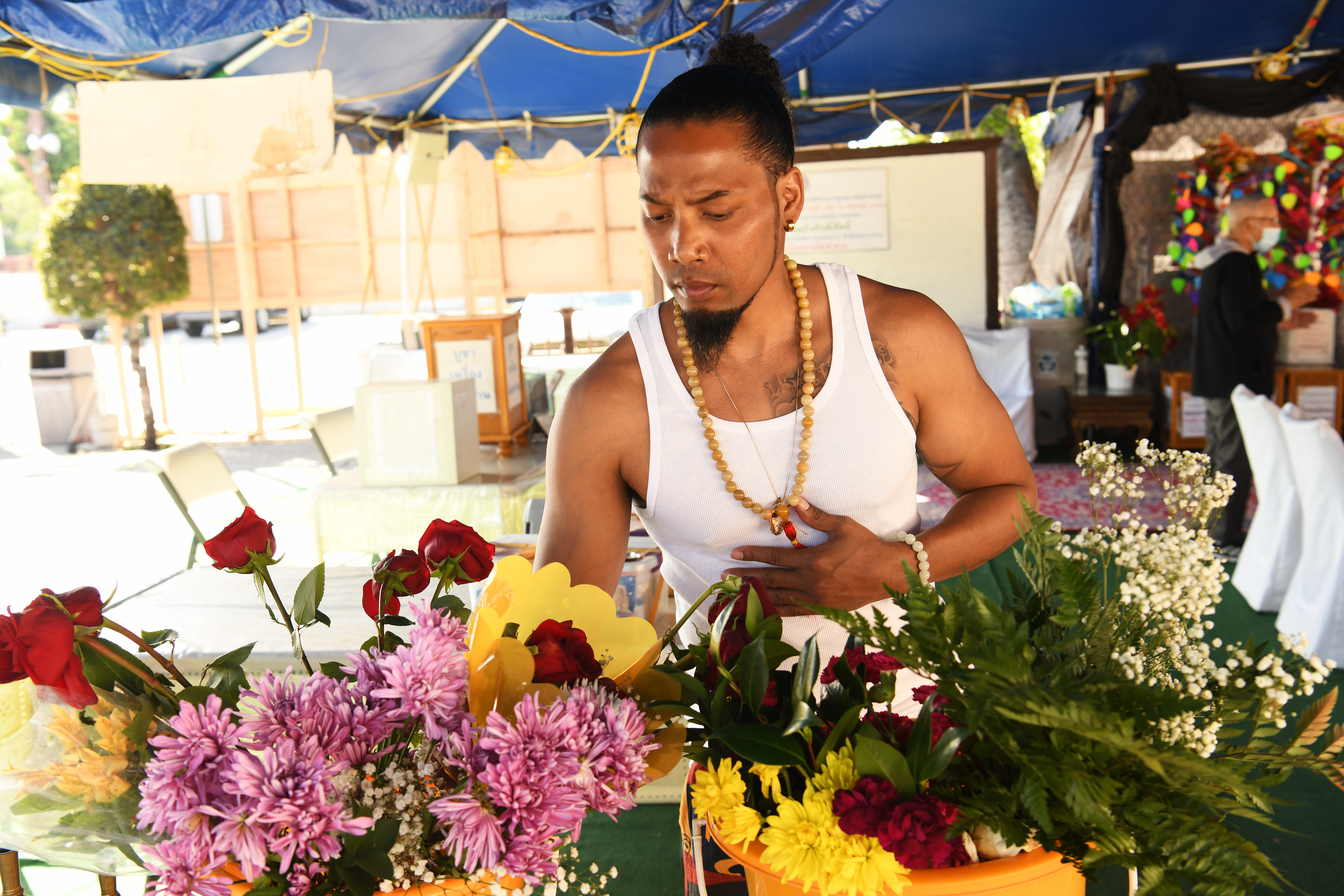
And with that our time had come to an end. Jamie Starr is a complex and thoughtful human with a stunning career and bright future. We all have egos but, from my perspective Jamie has used the best of his as a strength to get where he needed to be. What makes his talent rare is that he really cares. There’s still softness in a heart that could be hard. He came up as a child actor. There are a million reasons to be angry and it’s easy to get tough, but he is cutting a different path.
I loved that we had the chance to do this interview in informally, discovering Starr’s authenticity along the way. It takes a bit of extra time and effort to get the emotion, the vagueness that is a human being. But anything worth doing is worth doing well, right? I struggled to find the words that would adequately sum up our time so I just asked him if he had anything he would like to say about his “Mission” in life?
“I’ve been on a journey to know myself the best I can. From my national, ethnic, and family history to the individual journey that’s gotten me here today. I think an honest understanding of self allows us to better serve our calling in life. That’s my energy right now.”
From our time together and the subsequent conversations, I’ve seen firsthand how Jamie Starr’s evolution is not yet over and how he is still hungry after all these years to accomplish even more. Jamie Starr is like a diamond; he’s faceted and each of those facets works in a complimentary way to celebrate everything he is. He has a strategy to see life as integrative versus dualistic and has battled what could have been an antagonistic version of himself. I’m glad we had the time to find out a little about him and I wish him the best in his journey to success.
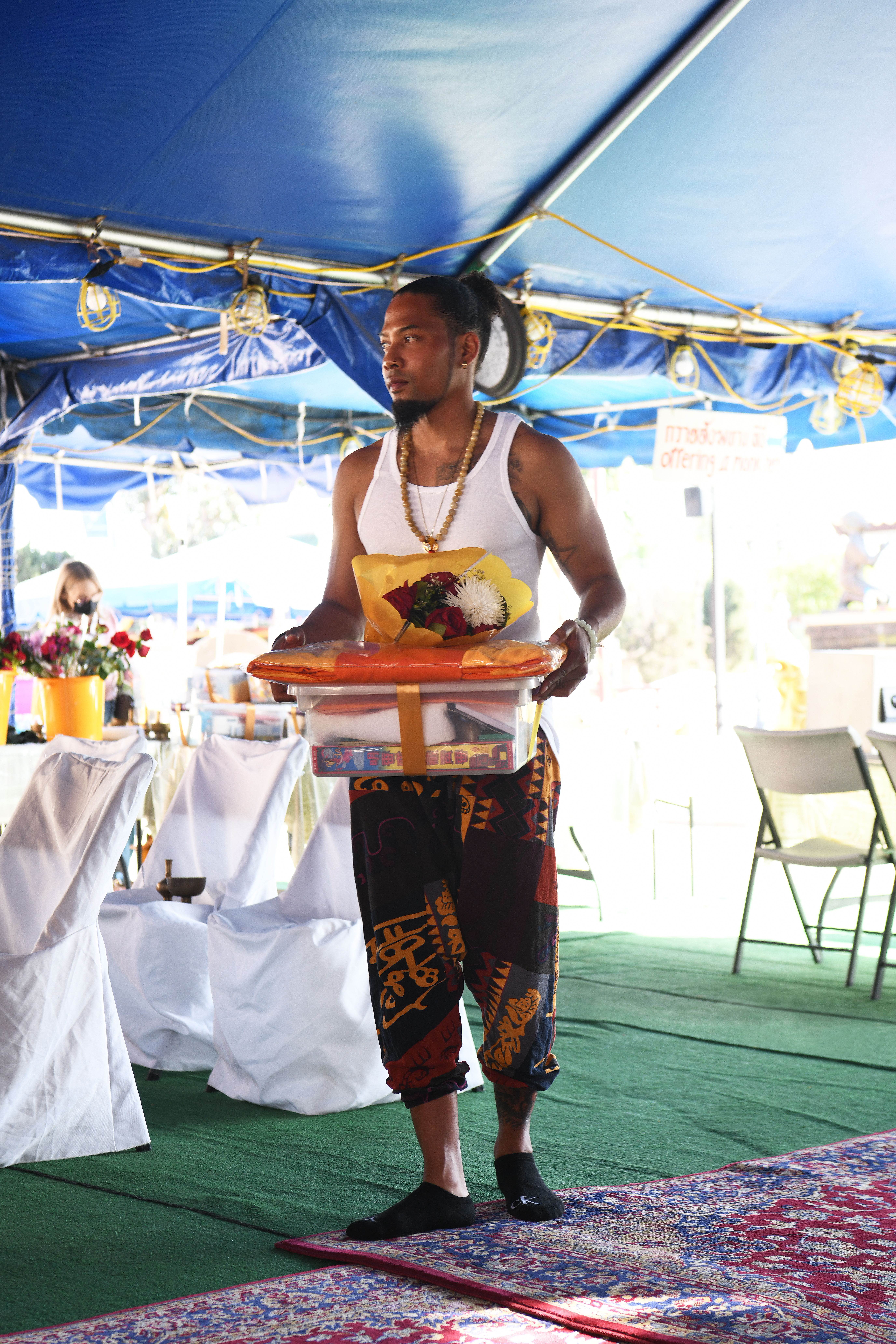
Check out Jamie’s IMDB and social media below.
https://www.imdb.com/name/nm1399266/
https://www.instagram.com/thorilla
Cover shoot, story and production credits:
Artistic creative direction – Lindsay Anne Delaney @citylightlinds
Photography/Styling – Lindsay Anne Delaney @citylightlinds
Interview – Lindsay Anne Delaney with Jamie Starr
Addicted Mag Cover Talent – Jamie Starr @thorilla
Typography Design/Re-touching – Alicia Churilla @byaliciacee
Shot on location in Los Angeles, California

